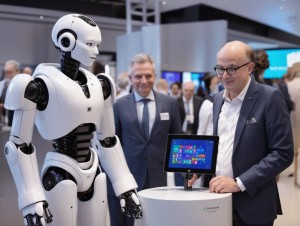In the wake of the Covid-19 pandemic, there has been an unprecedented surge in pet ownership, with millions of people embracing four-legged companions to navigate the challenges of home isolation. This shift in pet ownership trends has given rise to a burgeoning pet tech market, projected to be worth a staggering $22 billion by 2028, and driven by a compound annual growth rate of 23.2%. The pet tech industry is now leveraging on-demand cloud-based artificial intelligence (AI) resources to power innovative pet care platforms, benefiting both pet owners and veterinarians.
The pandemic-induced pet ownership boom
The People’s Dispensary for Sick Animals (PDSA) reports that 36% of all current UK owners of dogs, cats, and rabbits acquired their pets after March 2020, resulting in 4.1 million dogs and 3.7 million cats finding new homes since the pandemic began. This surge in pet populations has coincided with a growing reliance on digital technologies due to lockdown measures, leading to an increased demand for remote monitoring and tracking of pets.
Tech-savvy pet parents
Modern pet owners are embracing technology as a means to provide the best care for their beloved pets. Smart collars, pet observation webcams, automated pet feeders, and robotic fitness toys are just a few examples of tech-driven solutions that have become essential for pet owners. These innovations offer convenience and peace of mind, enabling owners to manage their pets’ needs more efficiently.
AI-powered pet biometrics
One groundbreaking application of AI in the pet tech industry is biometric identification. Seoul-based Petnow’s dog biometric ID app employs AI software to scan and recognize unique canine identifiers, such as “nose prints.” These wrinkle patterns around the nostrils serve as a distinct identifier for each dog, and the app cross-checks them against a scan of the animal’s face for added accuracy. This technology not only assists in identifying lost dogs but also enhances security for pet owners.
Predictive diagnostics with AI
AI is also making strides in predictive diagnostics for pets. TTcare, developed by AI solutions provider AI FOR PET, utilizes photographs of cats and dogs for healthcare purposes. The app can detect early signs of diseases and health issues, providing valuable information to pet owners. While TTcare doesn’t diagnose medical conditions, it alerts users to evidence of disease-related abnormalities, facilitating early intervention.
Remote consultations for pet health
UK-headquartered Vet-AI introduced the Joii Pet Care app in 2019, offering pet owners the convenience of remote consultations with veterinarians and veterinary nurses in real time via smartphones. More than 330,000 pets are now registered on the app. The app’s symptom checker tool can identify over 160 common conditions, enabling pet owners to receive guidance on the next steps without the need for an in-person vet visit.
Addressing behavioral issues
The rise in pet ownership during the pandemic has also seen an increase in behavioral problems among dogs. Join Pet Care’s AI is now being used to track these issues remotely. Separation anxiety, a common concern, can be observed in the pet’s home environment, offering behaviorists valuable insights to help address these problems effectively.
Revolutionizing Feline care
As the population of domestic cats in the UK continues to grow, chronic kidney disease (CKD) remains a significant cause of death among felines. Traditional detection methods often identify CKD after substantial kidney damage has occurred. However, RenalTech, a veterinary diagnostic tool, uses AI and machine learning to predict CKD with over 95% accuracy, allowing for early intervention and tailored healthcare plans.
AI’s ethical implications in veterinary medicine
While AI holds tremendous promise for pet care, it also raises ethical questions concerning the client-patient-practitioner relationship. As AI increasingly shapes the landscape of veterinary practice, pet owners are becoming more engaged in discussions about the ethical implications of these technologies.
The pet tech industry, driven by the power of AI, is transforming the way we care for our four-legged family members. From biometric identification to predictive diagnostics and remote consultations, AI is enhancing the quality of life for pets and providing valuable support to their owners and veterinarians. As this field continues to evolve, ethical considerations will play an essential role in shaping the future of pet care.





